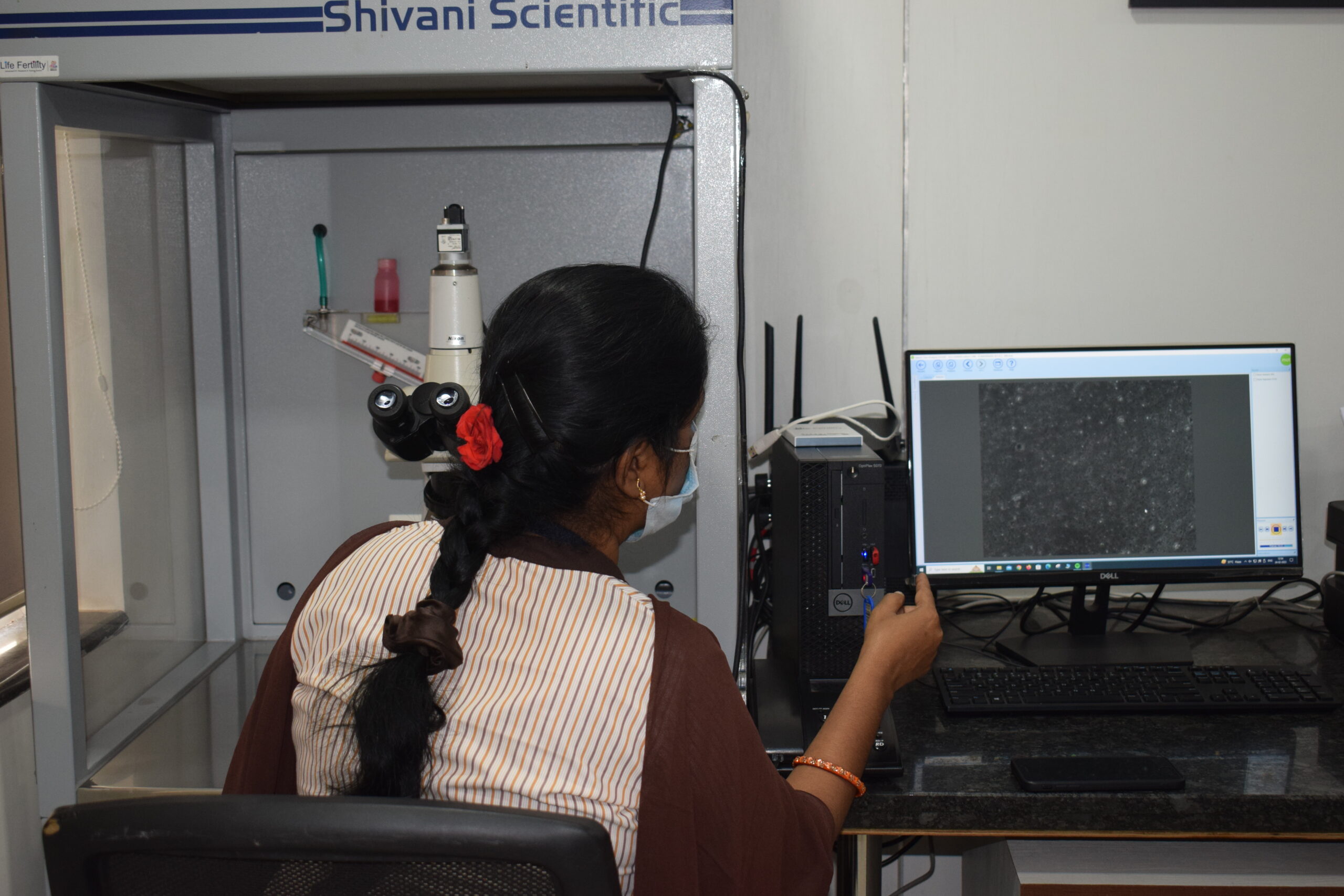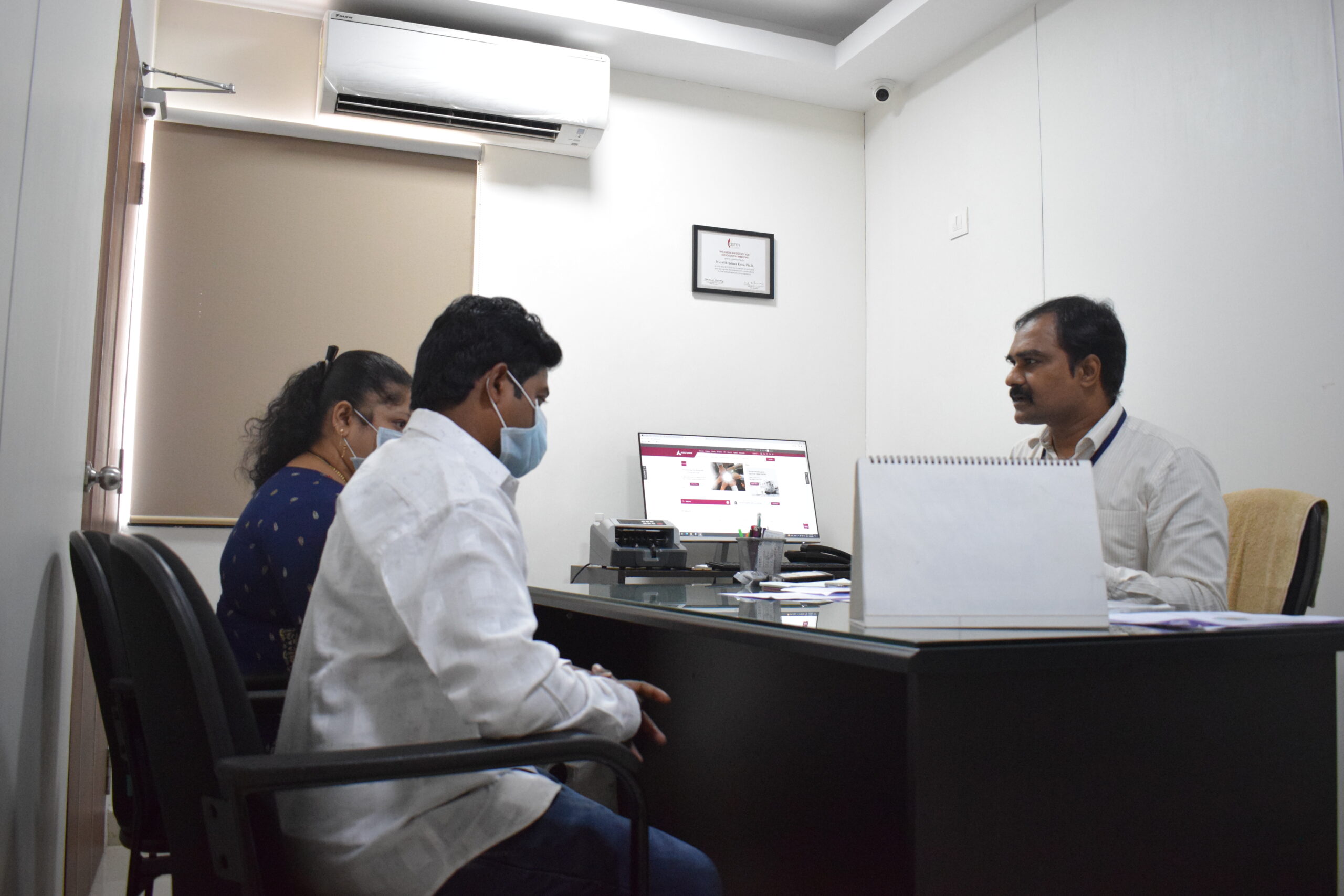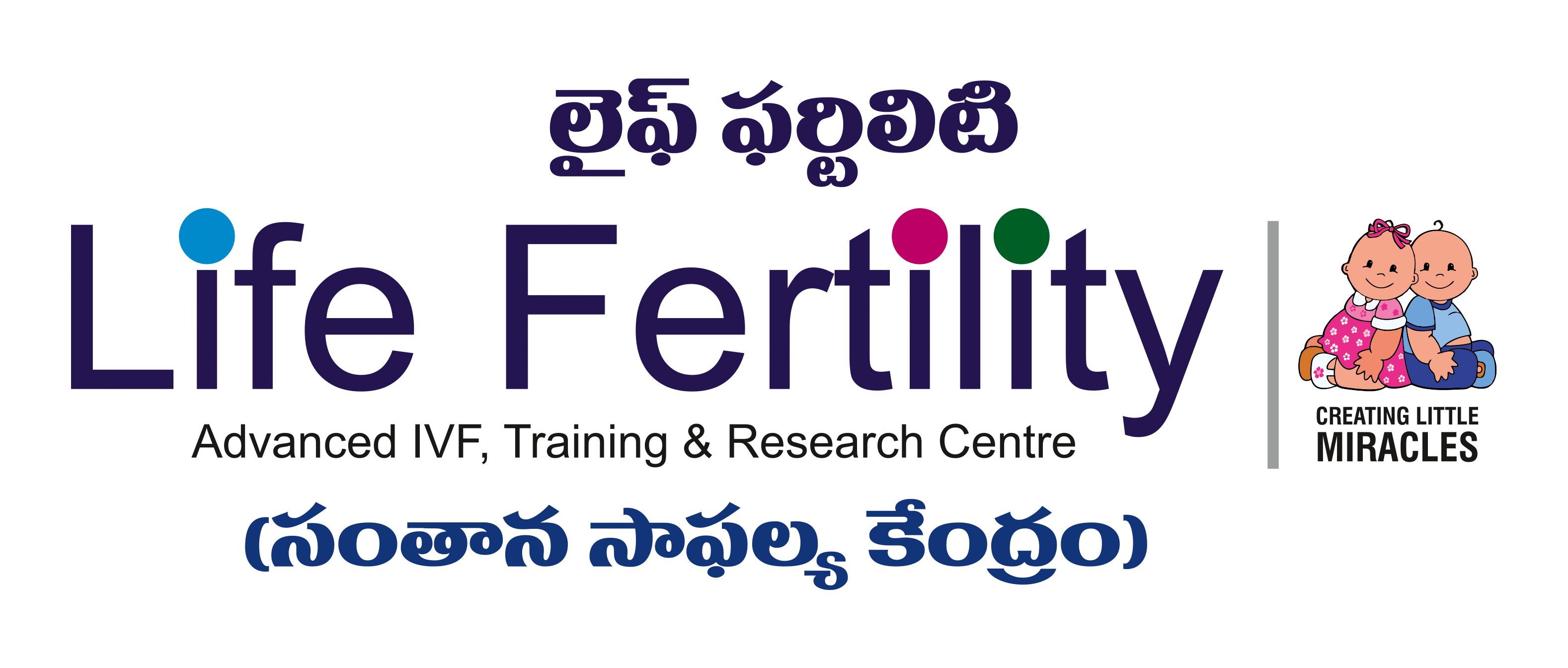INVITRO-FERTILIZATION (IVF)
In Vitro Fertilization (IVF): Bridging Dreams to Parenthood
In Vitro Fertilization (IVF) stands as a beacon of hope for individuals and couples facing challenges in conceiving naturally. This groundbreaking assisted reproductive technology has revolutionized the landscape of fertility treatments, offering new possibilities for those longing to build a family. Here’s a comprehensive overview of the IVF process, its applications, and the transformative impact it has had on reproductive medicine.
Understanding In Vitro Fertilization (IVF):
IVF involves the fertilization of an egg and sperm outside the human body in a laboratory setting. The process comprises several key steps designed to optimize the chances of successful conception:

1. Ovarian Stimulation:
- To increase the likelihood of obtaining multiple eggs, the woman undergoes hormonal stimulation to promote the maturation of several follicles in her ovaries.
2. Egg Retrieval:
- Once the eggs reach maturity, a minor surgical procedure is performed to retrieve them from the ovaries. This step is usually done under sedation and guided by ultrasound imaging.
3. Sperm Collection:
- On the same day as egg retrieval, sperm is collected from the male partner or a sperm donor.
4. Fertilization:
- In the laboratory, the eggs and sperm are combined to facilitate fertilization. This can be done through conventional insemination or intracytoplasmic sperm injection (ICSI), where a single sperm is directly injected into an egg.


5. Embryo Cultivation:
- The fertilized eggs develop into embryos over several days. The healthiest embryos are selected for transfer to the woman’s uterus.
6. Embryo Transfer:
- One or more selected embryos are transferred into the woman’s uterus, with the hope that implantation will occur, leading to a successful pregnancy.
7. Luteal Phase Support:
- Hormonal support is often provided to prepare the uterine lining for embryo implantation and to support early pregnancy.
Indications for IVF:
1. Tubal Factor Infertility:
- IVF is commonly recommended for individuals with blocked or damaged fallopian tubes, preventing natural conception.
2. Male Factor Infertility:
- When there are issues with sperm quality or quantity, IVF with ICSI can be employed to overcome male fertility challenges.
3. Unexplained Infertility:
- In cases where the cause of infertility is unclear, IVF can be a diagnostic and therapeutic tool.


4. Endometriosis:
- IVF is often suggested for individuals with endometriosis, a condition that can affect fertility.
5. Advanced Maternal Age:
- Women facing age-related declines in fertility may opt for IVF to increase their chances of conception.
Success Rates and Considerations:
IVF success rates have improved over the years, but they can vary based on factors such as age, the cause of infertility, and the number of embryos transferred. It’s essential for individuals undergoing IVF to have realistic expectations and to consult with fertility specialists who can provide personalized guidance.
Conclusion:
In Vitro Fertilization has emerged as a transformative solution for countless individuals and couples striving to achieve their dreams of parenthood. As science and technology continue to advance, IVF remains a beacon of hope, offering a path to conception for those navigating the complex journey of infertility.
Book an Appointment
FREQUENTLY ASKED QUESTIONS
What is IVF treatment?
In-Vitro-Fertilization (IVF) is a type of Assisted Reproductive Technology (ART) that helps you get pregnant if you are not able to do so naturally.
When is the right time to start IVF treatment?
Your doctor will explain the best time to start the treatment after the initial consultation, examination, and blood tests. Your clinician may start your treatment on the 2nd or 3rd day of your period.
Is IVF safe & Painful?
IVF is a very safe and effective treatment option and with the latest advancement in medical technology, IVF results have improved significantly.
IVF is not at all painful because the injections used for IVF are purified and injected in subcutaneous form. The egg collection process is done under light sedation which is also not painful. At the time of embryo transfer, anesthesia is not given but it is a 2 to 5 minutes process that hardly causes any pain. Every patient is different; therefore the process will differ from patient to patient. However, when it comes to IVF injections, they are thin and easy and do not require an intervention. They can also be administered under anesthesia if required.
What People Says about Life Fertility Clinic
Google Reviews
What People Says about Life Fertility Clinic
Testimonials

Our Contacts
________
#16-1-25, RS Edifice, Coastal Battery Rd, Collector Office, Jn, Visakhapatnam, Andhra Pradesh 530002